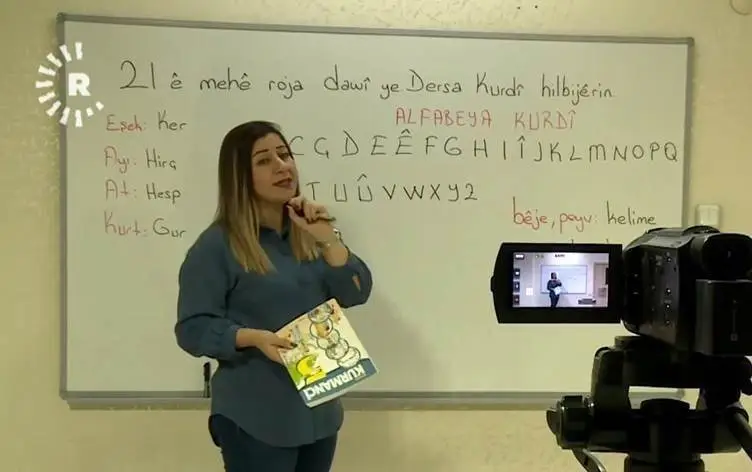Mizgin Yalçın, a teacher of the Kurdish language based in Diyarbakır, received numerous insulting and threatening messages on social media after she shared a video in which she mentioned the Kurdish names of provinces, the Stockholm Center for Freedom reported, citing the Voice of America Turkish edition.
The abusive messages were posted in the comment section of a video in which Yalçın was seen teaching a group of students the Kurdish names of the predominantly Kurdish southeastern provinces of the country.
Ji dersên Kurdî 💕
Diyarbakır – Amed
Hakkari – Colemêrg
Adıyaman – Semsûr
Maraş – Gumgum
Antep – Dîlok
Urfa – Riha
Bitlis – Bedlîs
Batman – Êlih
Bingöl – Çewlig
Tunceli – Dersîm
İstanbul – Stenbol
Ankara – Enqere#kurdî #kurmancî #kürtçe #kurdish #BANvsSL #kürtçeders #şehir pic.twitter.com/U32kGqBFeu— Kurdi Online (@KurdiOnline) November 7, 2023
Producing language course material on several social media platforms under the name “Kurdi Online,” Yalçın has some 77,000 subscribers on YouTube and more than 100,000 followers on Instagram.
She has filed criminal complaints against the people who posted the messages. Several bar associations from the region announced that they would follow up on the legal procedure. The Şırnak Bar Association denounced the online harassment against the teacher as a symptom of an underlying hatred of the Kurdish language.
Political parties have also expressed support for Yalçın. The pro-Kurdish Peoples’ Equality and Democracy Party (HEDEP) released a bilingual statement that said that the attacks were discriminatory and indicative of an intolerance regarding the Kurdish language.
Sezgin Tanrıkulu, a deputy from the main opposition Republican People’s Party (CHP), also expressed solidarity with Yalçın, stating that access to the native language is a fundamental human right.
Amedspor, a Diyarbakır-based soccer club, joined the debate on X, previously known as Twitter, stating that the attacks were reminiscent of the controversy surrounding the club’s rebranding in 2015. Formerly named after Diyarbakır, the Turkish name of the province, its transition to embrace the province’s Kurdish heritage had prompted reactions.
Established as a nation-state based on the prevalence of Turkish identity, the Republic of Turkey altered the names of many towns and villages whose previous names reflected their Armenian, Georgian, Kurdish, Greek or Syriac heritage. Based on a 2011 study by Armenian intellectual Sevan Nişanyan, more than 75 percent of the names were changed in most southeastern provinces.
While the Turkish state granted minority rights to Armenians, Greeks and Jews under the 1923 Treaty of Lausanne, Kurds were denied this right despite being the country’s largest minority group, and their language remained taboo until very recently. Restrictions on producing content in Kurdish and teaching the language were relatively eased in the early 2000s amid an acceleration of Turkey’s accession talks with the EU.
In the last decade, however, the ruling Justice and Development Party (AKP) has been governing the country in tandem with the Nationalist Movement Party (MHP), which has intensified the atmosphere of hostility against the Kurdish minority.

